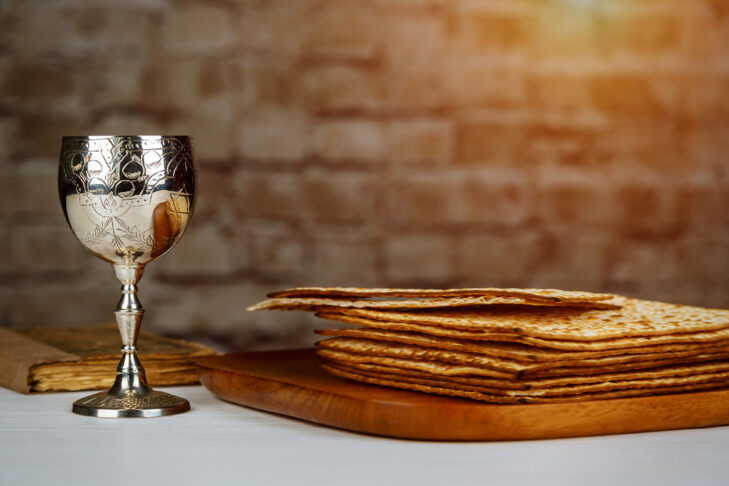Passover is going to be different this year.
I know this is a fact that many of us in the Jewish community have been mulling over as we sit in our homes, distancing ourselves and feeling distanced from our friends, family and community. It’s easy to feel an acute sense of loss rather than joyful anticipation as we prepare this year, differently than in years past.
The Jewish community has celebrated Passover in a multitude of ways in our millennia as a people. As I’m sure you know, we are not the first generation of Jews forced to come to terms with the fact that our celebration this year will not be the same as years past. And, yet, perhaps for many of us, this feels new and scary.
This Passover, we are still fortunate—fortunate to have technology that will give us the opportunity to be together no matter how far apart we really are, technology that disseminates myriad brilliant, thoughtful and relevant guides, Haggadot, meditations and meaning from sources all over the world with just a few clicks. We are fortunate to have communal leaders, rabbis, cantors, educators and lay leaders who are working hard to create resources and communal opportunities to be “together” and see one another. And most of us are fortunate to still have access to food and shelter, the most basic of freedoms.
I know it will be different, but it will still be.
Arguably the most important commandment of Passover is telling our story of slavery to freedom, and not only have we continued to do this despite our many historic circumstances, but this challenging year will also become part of our story. How many of you tell your family stories when you gather for the Passover seder? “Remember the time Uncle Ploni fell asleep halfway through the seder and woke up singing, ‘Let My People Go’?!” The harrowing tale of our journey to freedom has always been peppered with our own Passover memories of seders past and poignant moments in our own lives and our communal lives.
Take a moment and think of your Passovers past, however many there have been. Who joined your table? What delicious foods awaited you once the bulk of the seder had been complete? How have the afikoman prizes evolved over the years? Which step of the seder seemed particularly poignant one year while you found yourself thinking about a different section the next year?
The seder remains the constant; we are constantly changing from year to year. We weave our own experiences, stories, memories and challenges into our seder, into our Passover retelling, and in that respect, this year will be no different. In the midst of our uncertainty, let the steady rhythm of the seder be our guide, the fixed beating of our communal heart.
It’s OK to feel the loss, the frustration, the isolation. It’s OK if you are unable to do everything you had planned. It’s OK that this year won’t be like last year or next year. It’s all part of our story.
At the end of the seder, we always say, “Next year in Jerusalem!” Perhaps “Jerusalem” has also symbolized other things for you or your family—new goals on the horizon, potential not yet reached, hope. I know this sentiment will be imbued with even more meaning this Passover. We are a people of memory, of stories and of hope.
Next year in joy!
Next year in health!
Next year together!
This post has been contributed by a third party. The opinions, facts and any media content are presented solely by the author, and JewishBoston assumes no responsibility for them. Want to add your voice to the conversation? Publish your own post here. MORE



